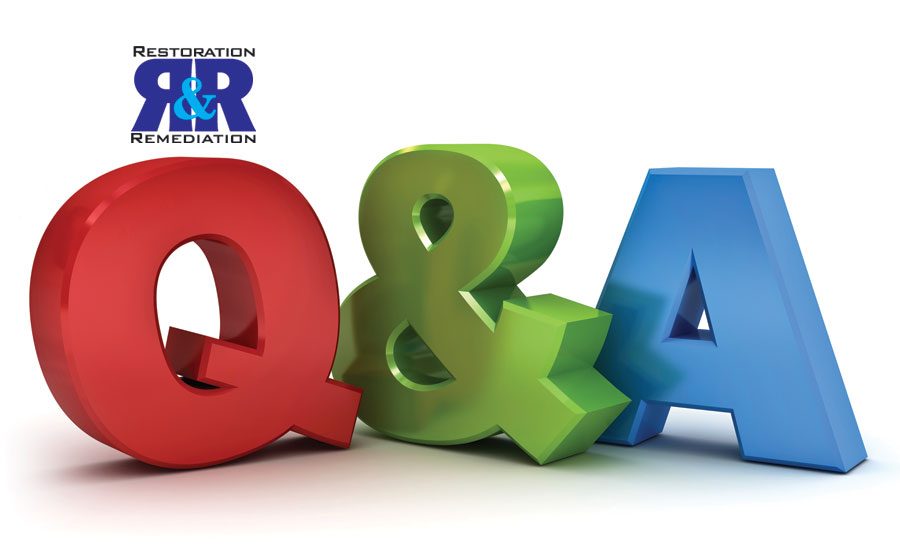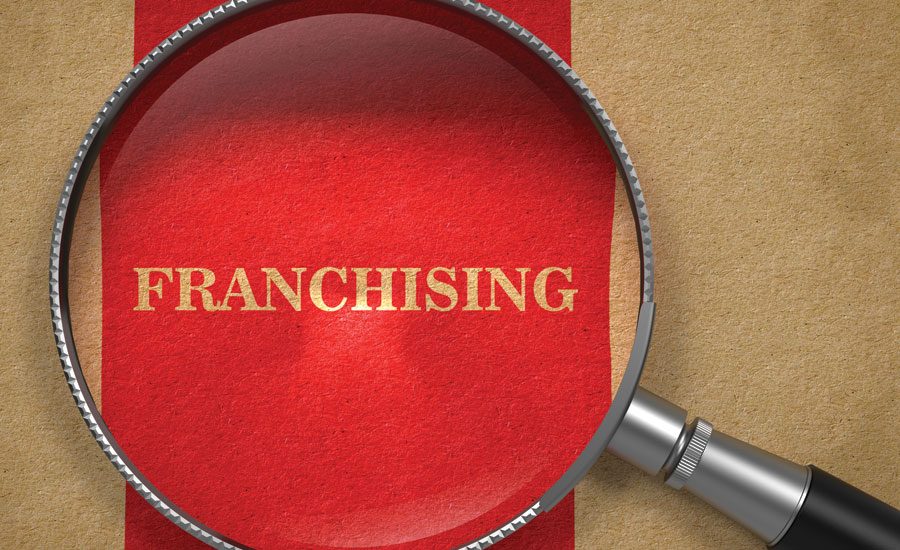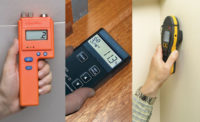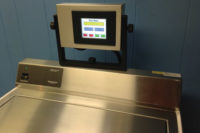Editor’s Note:
Earlier this year, I had the opportunity to talk to Mark Davis about his journey of mega growth in the restoration industry leading up to the owners of Signal Restoration Services, Davis and Frank Torre, acquiring PuroClean. Even more recently, PuroClean announced a major expansion into the European market. But Davis’ journey did not start at PuroClean. He has a proven track record of growing small restoration companies into regional, national, and even global restoration powerhouses.
Q: Tell me about your journey in the restoration industry. How did you get to where you are today?
A: “April 15, 1996 was my first acquisition. I acquired Rocky Mountain Catastrophe in Denver, Colo. I didn’t know anything about restoration. I was 27 years old and wanted to live in Denver and I wanted to own my own company. That was the driving force. I didn’t have a lot of money, but I guess I didn’t know any better. My 50-50 partner and I met with a small business broker, and he brought us the company for sale. I didn’t know anything about restoration, not one thing, but after reviewing the information and learning about the industry, we went for it. The owners were willing to finance the majority of the purchase price. We put a full business plan together that made a lot of sense and they actually picked our offer over a full cash offer. But we offered them $500,000 more if they would finance it.”
Q: Okay, so you jumped into the great unknown of the restoration industry – talk about your nearly instant success.
A: “When we bought the company, it was doing about $3.5 million a year in annual revenue. We did $11 million the first year, $25 million the second year, and $35 million the third year. The first year, we added offices in Vale and Fort Collins, Colo., and in the second year we bought another restoration company. Then in the third year, we started a restoration company specializing only in commercial large loss recovery solutions.”
Q: How did you make the jump from this local, independent restoration company to playing a major role in BELFOR’s US growth and expansion?
A: “When we hit $35 million in the third year, we were then approached by a company in Germany called Franz Haniel & Cie GnbH. They owned a company that was in Europe and Asia only, called BELFOR. They wanted to come to North America and pick a company to be the founder and platform for BELFOR in all of North America. We were one of five companies they interviewed, and they picked us. We literally sold them 80 percent of our company in 1999, and we founded BELFOR in North America.”
Q: Can you walk us through your business timeline? Sales, acquisitions, growth, and so on?
A: “As the CEO of BELFOR, we did several acquisitions around the United States, and one was in Michigan – called Inrecon. When we bought that company, I moved the BELFOR headquarters from Colorado to Birmingham, Mich., on July 12, 2001.
“I sold my remaining shares in BELFOR in 2004, after successfully growing the company from $35 million to over $400 million in annual revenue just in North America. I then had a non-compete.
INSTAR
“At the conclusion of the non-compete, I took over INSTAR, another national restoration company and moved their headquarters from Texas to Troy, Mich., in March of 2009. In June of 2011, I sold my shares in INSTAR after executing a successful financial turnaround.
Signal
“Then, I bought Signal with a partner, Frank Torre, which was headquartered in Troy since 1972. We immediately took Signal from a one-office, medium-sized $10 million-in-revenue-company to $140 million in the first year in business. We did a couple things to make that happen. We bought a company in Orange County, Calif., called USA Specialized Services, and got the largest series of projects in New York City from Superstorm Sandy – five hospitals owned by the city. It was the largest project in the city as a result of the storm. I had done 90 projects around the perimeter of Ground Zero after 9/11, so I already had a strong vendor-contractor relationship with New York City prior to Superstorm Sandy.
“By now, Signal has eight offices including significant expansion in Michigan, Kansas City, Houston, New York City, and Orange County, Calif.”
Q: Okay, before we get into the present day, and PuroClean, can you give us a little background on why are you so passionate about franchise systems today?
A: “I was always envious of the franchise model of distribution because companies like Servpro and ServiceMaster certainly always had better distribution than we did at BELFOR and sometimes it was difficult to compete against that distribution and yet they were able to do it with a lot less capital invested because they weren’t actually funding those acquisitions, they were selling franchises. It was always my dream to own a franchise system and be a franchisor in our industry. That has been a dream of mine for like 15 years. So when the opportunity came up, privately, to potentially acquire PuroClean, we obviously focused on that opportunity and were able to get it purchased in September of 2015.
Q: What happened after you purchased PuroClean?
A: “As of earlier this year, there were 237 franchise locations … 204 in the U.S. and 33 in Canada. We are aggressively growing. Adding 40 new franchise locations in 2016. We will be at 400 franchises in five years. We are working aggressively finding independent restoration contractors not tied to any particular brand interested in joining a brand with national accounts – not just insurance, but with end-user national accounts. Eighty percent of our owners are people who have not been in the industry before.”
Q: Earlier this year, you announced plans to expand to Europe. How did that come about?
A: “After we (Signal) completed more than $140 million in restoration work in New York City after Super Storm Sandy, we were asked by one of our multi-national clients if we could perform restoration work in the UK and Germany. We had just signed a Master Services Agreement with them for the US and they had major facilities in Europe they wanted us to be able to respond to. It was at that point when we decided we would be expanding into Europe at some point in the future.
“Signal Restoration Services acquired a majority share of PuroClean in 2015.”
Q: You have a remarkable track record for growing companies exponentially. How did you develop your business savvy?
A: “I am blessed to have been born and raised in a small farm town in Southeast Nebraska. One of my favorite quotes I learned very early in life, at age 12, is: “A person who wants milk ought not sit on a stool and wait for a cow to back up to him.” My family life was very strong. My dad was the city and county attorney and my mom was a substitute English teacher. We had a great life, but there was no time or money for vacations or extra expense items. When I saved up $9,000 while working three jobs in high school and was ready to buy a car with my own hard earned money to take to college with me, my dad said, “No way. You don’t need a car at school.” When I defiantly went to the bank to withdraw the money and buy the car anyway, the bank informed me that the joint savings account my dad had set up with me 10 years prior required two signatures to make a withdrawal. Something clicked at that moment. I was going to achieve financial independence. I loved my parents dearly, but I was bound and determined from that point forward that I would work tirelessly to control my own destiny.
“Too often entrepreneurs try to do it all. Early on they typically have to do it all to get started. The truly successful owners recruit, train, and retain the best talent they can find (and afford) as quickly as possible during the early growth periods and try to focus on doing what best fits their skill sets. I have always hired people with talents stronger than mine. In recruiting, painting a picture of where the company can go as the organization builds it together has been key to landing and keeping the best talent.”
Q: What advice would you give a restoration contractor wanting to grow and expand, but who is unsure how to make it happen?
A: “The first question I ask is what are your goals? Are you wanting to expand your geographic service area? Your service lines? Are you willing and able to finance another fully functioning service center or just a satellite office for marketing purposes?
“If a strong restoration company has a good brand and a solid business in one market, it is no guarantee that just by opening in another market you will enjoy that same success. Even with program work and the recurring revenue from TPA’s, this is still very much a relationship business. Finding a local business development professional with local contacts is key to success in any market.
“My #1 piece of advice would be to consult with others who have gone before you. Learn from their mistakes and their successes. Then combine what you learn with your own goals and appetite for risk. Then go for it!”







Report Abusive Comment